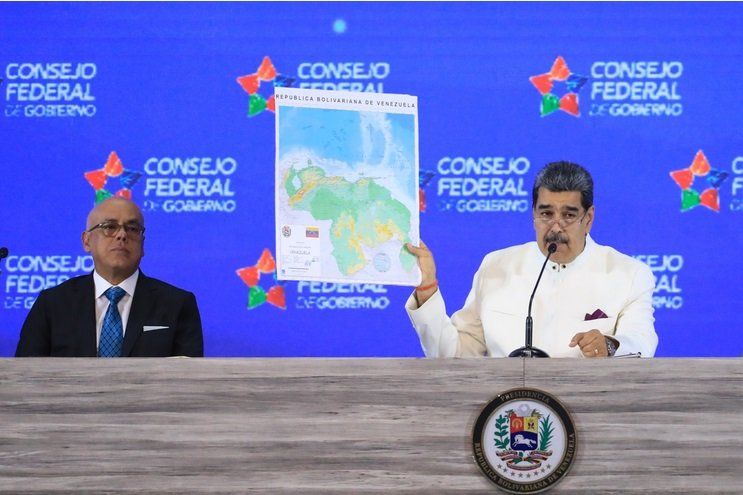The presidents of Venezuela and neighboring Guyana will meet Thursday in a bid to defuse a high-stakes territorial dispute. Both sides have very different views.
Caracas says the western two-thirds of Guyana – a region called Essequibo – rightfully belong to Venezuela, and that the current border is an illegitimate figment of 19th century cartography.
President Nicolas Maduro called a popular referendum to back his claims and has threatened to annex the region outright. Guyana, for its part, rejects this entirely and says an international court should decide the issue.
At stake are huge reserves of recently discovered oil in Essequibo, which could triple tiny Guyana’s GDP over the next decade as US firms develop the resources.
Troops are amassing on both sides of the border between the countries, and with US forces already helping the Guyanese military to protect the oil fields, any conflict could quickly spiral into a wider confrontation.
While neither side appears willing to compromise, they will meet Thursday on the Caribbean island nation of St. Vincent for talks.
